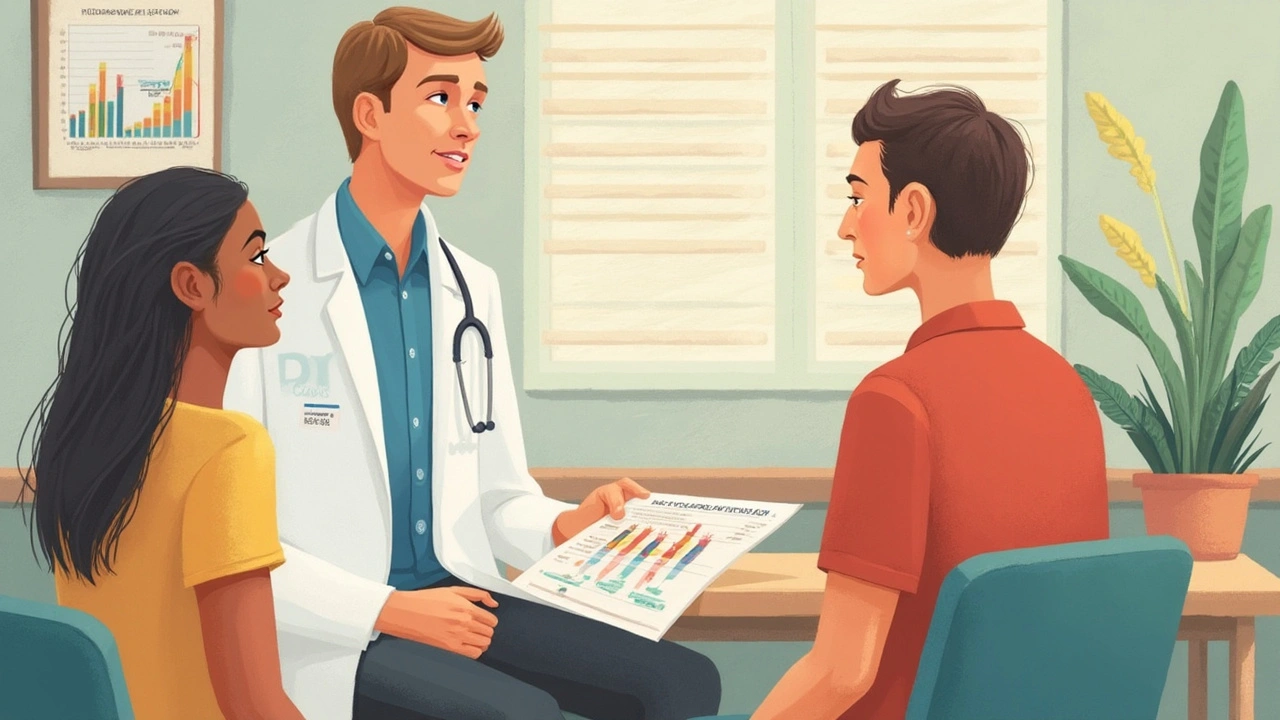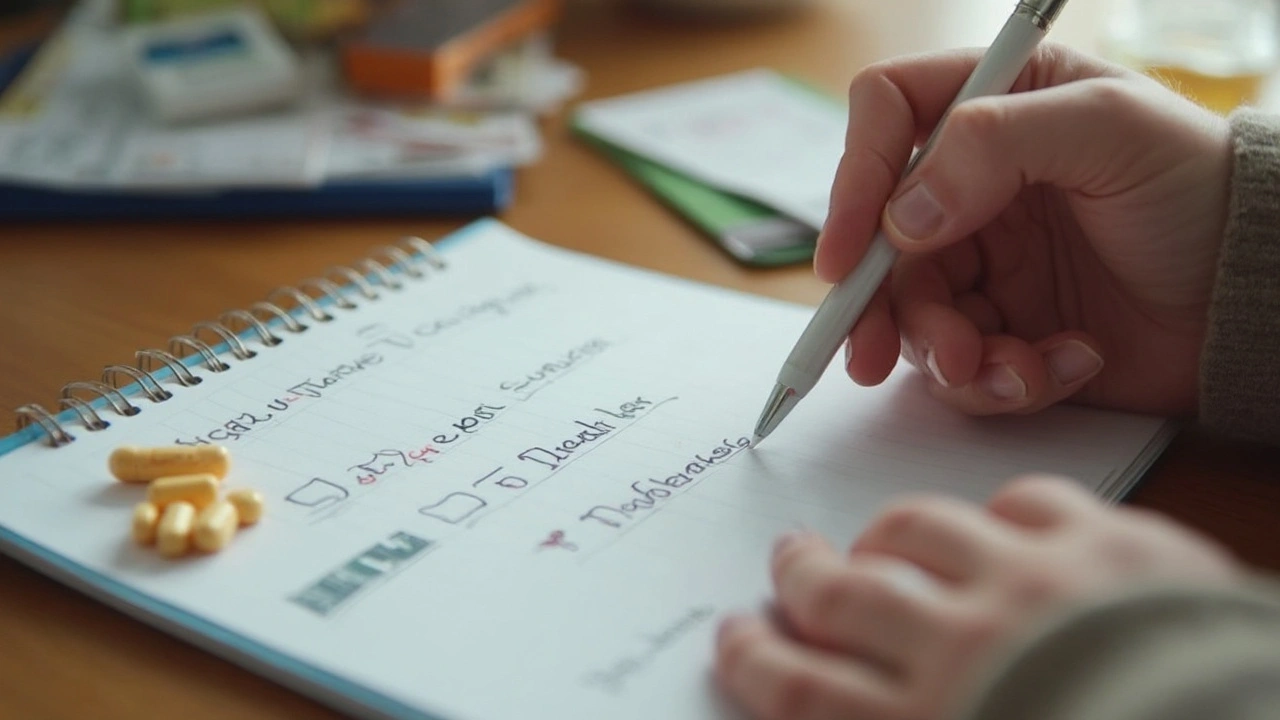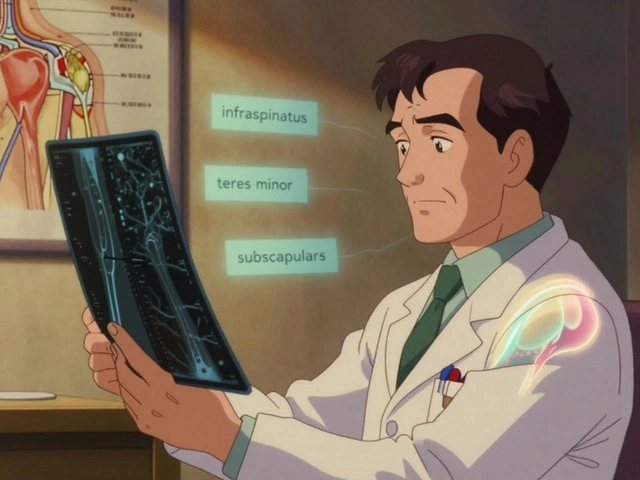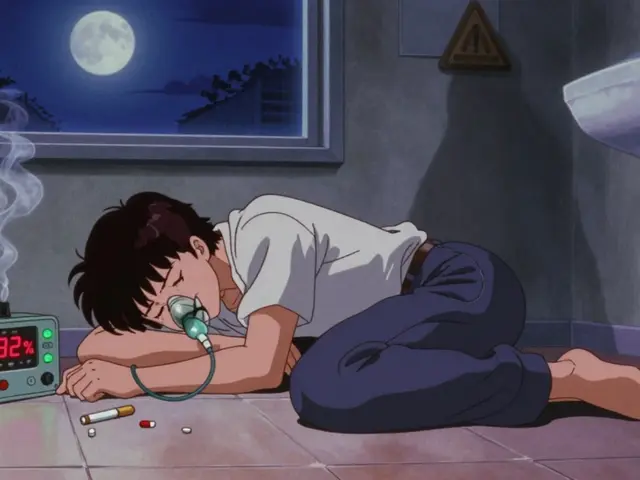If you’re used to popping a daily hydrochlorothiazide tablet to keep your blood pressure in check, the word “allergy” might sound like a curveball you didn’t see coming. Yet for some people, that tiny white pill can stir up way more than just pee breaks and salt cravings. Picture this: a day after your dose, your skin turns red and itchy, your face feels puffy, or your breathing gets a little off. Crazy as it seems, a medicine millions trust could turn on you like that, and picking up on those warning signs could make all the difference.
Understanding Hydrochlorothiazide and Why It Matters
Hydrochlorothiazide is much more than a tongue-twister—it’s the go-to diuretic (or “water pill”) for treating high blood pressure and swelling. It’s been around since the 1950s, and today, doctors write millions of scripts for it every year. At pharmacies from Musgrave to Missouri, it’s hailed for being cheap, reliable, and fairly gentle on most folks. Basically, it nudges your kidneys to shed extra salt and water, which lowers your blood pressure and helps prevent strokes, heart attacks, and even kidney stones in some cases.
Why is it such a staple? Consistency. It works across the board, especially in communities with high blood pressure rates—like South Africans of African descent, people over 60, and even folks with diabetes who need a little help. Hydrochlorothiazide doesn’t just reduce numbers on your sphygmomanometer; it also helps reduce swelling linked to heart or liver problems. Yet for every positive, there’s a gotcha: allergies do happen, and the effects range from mild skin rashes to full-blown emergencies. That’s why knowing the risks—especially if you have a history with allergies or sulfur drugs—matters so much.
Hydrochlorothiazide is in a family of medicines called thiazide diuretics. It’s closely related to chlorthalidone and indapamide. Now, here’s the kicker: they all carry a sulfonamide chemical structure, sometimes making people with sulfa allergies wary. Not everyone with a sulfa allergy will react, but you’ve got to keep an eye out—especially if you’ve ever broken out in hives after antibiotics like sulfamethoxazole-trimethoprim. And while who expects a water pill to cause drama? In rare scenarios, that’s just what you’ll get.
Spotting Allergic Reactions: Symptoms to Never Ignore
If you’re already on hydrochlorothiazide and wondering what trouble looks like, it’s all about paying attention to your body’s signals. The most common allergic response involves the skin—think red, itchy, spotty rashes that show up without warning. Sometimes it gets weirder, like lips or eyelids ballooning, or a tongue that suddenly feels thick. If breathing starts getting harder, or you feel dizzy or faint, that’s a red flag for anaphylaxis—a medical emergency. Even less dramatic reactions shouldn’t get shrugged off. Are you suddenly sensitive to sunlight, or are you seeing purple patches? Even “harmless” itching or a persistent cough can be linked to a medicine reaction, especially if it lands right after a dose or a few days in.
What else should you watch for? Watch your urine color. If it goes dark or you start swelling up all over, kidney issues might be brewing. Achy joints or fever are also classic warning signs, hinting that your immune system is not happy. If you have asthma, eczema, or allergies to meds, your chance of reacting to hydrochlorothiazide jumps up a notch. Same goes if you’ve previously reacted badly to similar medications.
If you spot any of these signs, the first step isn’t to panic—it’s to call your doctor or get to urgent care. For chills, skin blisters, hives, or throat tightness, skip the phone call and just go straight to the ER. Trust your gut—better to be safe than sorry.

Precautions for Those at Higher Risk
Say you’ve got allergies to other meds, or maybe someone in your family swells up at the sight of penicillin or sulfa drugs. Should you avoid hydrochlorothiazide? Here’s where it gets tricky: most people with antibiotic sulfa allergies can actually take the “non-antibiotic” sulfa in hydrochlorothiazide without problems. But if you’ve ever had a severe reaction like Stevens-Johnson Syndrome or anaphylaxis, you and your doctor will need to talk things through very carefully.
It’s not just the classic allergy types you have to consider. Folks with autoimmune issues, such as lupus, are a bit more likely to get rashes or sunburn-type reactions. Same if you have chronic kidney or liver problems, as the medicine can build up and trigger odd side effects. Pregnant women also need to be careful, because hydrochlorothiazide can mess with fluid balance in ways that aren’t always safe for moms-to-be or the fetus. Plus, people with gout need to know this pill can sometimes make joint pain worse.
Practical tip: always, always list hydrochlorothiazide among your meds when you fill out a medical form. Wear a medical alert bracelet if you’ve had any drug allergy in the past. Keep a record on your phone or wallet for emergencies. Ask your pharmacist about hidden sources of sulfa or potential interactions with your other medications, especially if you’re juggling multiple chronic conditions. Real-life scenarios pop up more often than you think, especially with older adults who are on a handful of daily pills.
If you notice side effects, never just quit the pill without checking with a healthcare pro. Going off suddenly can shoot your blood pressure sky-high or make swelling worse, creating new problems that outweigh the allergy risks. The idea here is to find a solution that keeps you safe without risking a trip to the emergency room.
Alternatives to Hydrochlorothiazide and Making the Right Switch
If you and your doctor decide hydrochlorothiazide isn’t your match, the good news is you’ve got options. The obvious swaps are other thiazide-type drugs like indapamide or chlorthalidone, which sometimes give fewer side effects and last longer in your system. Chlorthalidone, for example, is often considered the more powerful cousin—some studies suggest it lowers blood pressure better than hydrochlorothiazide, especially in Black patients or older adults.
But not every alternative is a slam dunk. All thiazide diuretics share that sulfa base, so if your allergy is legit, you’ll likely need a different class entirely. Potassium-sparing diuretics like amiloride or spironolactone come into play here—they help your body lose salt but hold onto potassium, which fights the cramping and dehydration sometimes caused by hydrochlorothiazide. Another good option is loop diuretics, such as furosemide or torsemide, which get prescribed more for people with heart failure or swelling, but can be used for blood pressure if your doc thinks it fits.
If you’re thinking of going outside the diuretic world, ACE inhibitors (like enalapril), ARBs (such as losartan), calcium channel blockers (like amlodipine), or beta-blockers might do the trick, depending on your health status. It all comes down to your unique medical story, so don’t swap or combine meds on your own. Each class comes with its own pros, cons, and allergy potentials. Spironolactone, for instance, doesn’t have sulfa, but watch out—it can mess with your hormones or potassium levels. Furosemide may help avoid sulfa cross-reactivity, yet in some rare cases, even that can cause trouble in people very, very sensitive to sulfa drugs.
Switching drugs isn’t just about changing a label on the box—it means tracking your blood pressure closely for at least a couple of weeks, adjusting doses, and making sure your body’s handling things okay. Your doctor might ask for more blood tests, especially to check your electrolytes, kidney function, and signs of swelling or dehydration. Tech makes this easier, too—apps let you log blood pressure readings, track side effects, and share data with your doctor almost in real-time.
If you’re nervous about trying a new med, ask about starting with a very low dose, and go slow. Try filling your script at the same pharmacy—they’ll have your allergy history on record and can spot warning signs you might miss. Don’t forget, pharmacy staff are a goldmine for tips on timing your doses, managing bathroom runs, and figuring out which foods or over-the-counter meds to avoid that could make allergies worse.

Everyday Tips and Real-World Advice for Living Safe
No matter what ends up in your medicine cabinet, daily life with blood pressure meds has its share of ups and downs. Maybe you’re juggling work, school runs, and side effects, or trying to remember which meds to take with breakfast and which to skip if you lose your appetite. The first trick is keeping it simple—a pillbox or app reminder goes a long way, especially on busy mornings. If you’ve switched to a new med, tell your close friends or family and teach them what allergy signs look like. They’re usually the first to spot a swelling lip or a new rash on your arm.
Most people on hydrochlorothiazide or its buddies need to check their blood pressure regularly. Don’t rely on “I feel fine”—even young folks in peak shape can sometimes have numbers that creep up without warning. If your doctor suggests home monitoring, invest in a reliable cuff and jot down readings, especially during a switch in medication. Learn which symptoms never to ignore: sudden weight gain, feeling faint, rash, or chest tightness should always earn a call to your clinic.
Hydration is a big deal. It may sound weird after reading about a water pill, but you don’t want to swing the other way and wind up dehydrated. Drink when you’re thirsty, but don’t force it. Try cutting out added salt—processed foods, salty snacks, and loads of biltong can push your blood pressure up, making your meds work overtime. Want a secret? A bit of exercise—even a quick walk around the block—can help your meds do their job and keep you energized without spiking your blood pressure.
Most of all, never be shy about asking questions. The best healthcare happens when you and your doctor work together, and your pharmacist is often the fastest route for answers about odd side effects or drug swaps. Knowledge doesn’t just protect you—it makes you more confident to handle flare-ups and decisions if you ever need to make a change fast.
It’s easy to overlook the power a single pill holds, until things start going sideways. Hydrochlorothiazide works wonders for many, but if you’re worried about allergies or have ever felt something was off, don’t just wait it out. Stay alert, know your options, and make those check-in calls if anything feels wrong. That little dose of caution might just keep you out of a hospital bed—and living your life without interruption.







dayana rincon
15 June, 2025 05:04 AMSo let me get this straight - a water pill can make you look like you lost a fight with a jellyfish? 🤨 I took HCTZ for 3 years and all I got was a really good tan and a new hobby: sprinting to the bathroom at 3 AM. Also, why is everyone acting like this is news? My grandma’s pill organizer has more warnings than a nuclear power plant sign.
Chelsey Gonzales
16 June, 2025 06:41 AMomg i just realized i’ve been taking this for 5 years and never thought about the sulfa thing… my skin has been itchy since last summer 😭 maybe its not just the laundry detergent? gonna call my dr tmrw. also why does everyone say ‘water pill’ like its a cute nickname?? it’s a tiny chemical grenade.
Tressie Mitchell
16 June, 2025 11:30 AMHow is this even a discussion? The entire pharmacopeia is a minefield of chemical compromises disguised as ‘medicine.’ Hydrochlorothiazide? A 1950s Band-Aid on a systemic problem. We’re treating hypertension like it’s a plumbing issue - flush the fluid, fix the symptom - while ignoring root causes like diet, stress, and the fact that 80% of Americans are metabolically broken. If you’re allergic to HCTZ, congratulations - your body is smarter than your doctor’s script pad. The real alternative? Stop eating processed food, move your body, and stop treating symptoms like they’re puzzles to solve with pills.
And yes, I’ve read the studies. Yes, I’ve seen the data. And no, you don’t need another diuretic. You need a lifestyle reset that doesn’t come in a 30-count blister pack.
Chlorthalidone? Still sulfa. Spironolactone? Hormone chaos. Furosemide? Kidney stress. ACE inhibitors? Dry cough that sounds like a dying seal. The only truly safe ‘alternative’ is prevention - and that’s not profitable, so it’s not promoted. Wake up.
Stop chasing pharmacological quick fixes and start asking why your body is screaming in the first place. Your pharmacist can’t fix your diet. Your doctor can’t prescribe a walk. And no, ‘I feel fine’ is not a biomarker for health.
This isn’t about allergies - it’s about a broken system that sells convenience over competence. And you’re all still swallowing it. Literally.
Orion Rentals
17 June, 2025 18:09 PMIt is imperative to underscore the clinical significance of sulfonamide cross-reactivity in the context of thiazide diuretic administration. While the incidence of true IgE-mediated hypersensitivity to non-antibiotic sulfonamides remains statistically low, the potential for severe cutaneous adverse reactions - including Stevens-Johnson syndrome and toxic epidermal necrolysis - necessitates a meticulous medication history review prior to prescription. The American Heart Association and the American College of Cardiology both recommend patient-specific risk stratification, particularly in populations with prior anaphylactic reactions to sulfa antibiotics. Alternative antihypertensive regimens, such as angiotensin receptor blockers or calcium channel blockers, are clinically appropriate substitutions in cases of confirmed allergy. Furthermore, the utilization of electronic health record alerts and pharmacist-led medication reconciliation protocols significantly reduces adverse drug event rates. I urge all clinicians to prioritize pharmacogenomic awareness and patient education in routine hypertension management.
Sondra Johnson
18 June, 2025 04:08 AMOkay but let’s be real - if your body’s throwing a full-on rave with hives and puffiness over a water pill, it’s not being dramatic, it’s being a genius. I had a friend who broke out like she’d been dipped in chili powder after HCTZ, and her doctor was like, ‘Probably just dry skin.’ Bro, that’s not dry skin, that’s your immune system doing the worm and screaming ‘ABORT MISSION.’
Switching to losartan was like trading a haunted toaster for a toaster oven that plays jazz. No itching, no brain fog, no weird sunburns. And guess what? My blood pressure stayed chill. Turns out, not every pill needs to be a sulfa-based surprise party.
Also, if you’re on multiple meds and your pharmacist doesn’t know your full cocktail by heart, find a new one. Pharmacists are the unsung heroes who catch the ‘oh yeah, I also take that weird green pill from 2018’ stuff. They’ve seen it all. Talk to them. They’re basically medical detectives with better snacks.
And if you’re scared to switch? Start low, go slow, track everything. Your phone can do more than scroll TikTok - use it to log BP, symptoms, and bathroom trips. Your future self will high-five you.
MaKayla Ryan
19 June, 2025 01:42 AMOf course Americans are having allergic reactions - you people take every pill under the sun like it’s candy. In my country, we eat real food, walk everywhere, and if you get high blood pressure, you fix your life - not pop a white tablet and call it a day. This isn’t a medical issue, it’s a cultural one. You’re lazy, you’re addicted to convenience, and now you’re blaming the medicine? Grow up. There are better ways to live - stop looking for a pill to fix your couch potato existence.
Kelly Yanke Deltener
19 June, 2025 18:23 PMI had a cousin who went into anaphylaxis on HCTZ… and then the hospital gave her another sulfa drug by accident. She was in the ICU for three weeks. I still cry thinking about it. Why don’t they just test for allergies before prescribing? Why is it always ‘try it and see if you die’? I’m so tired of people treating medicine like a game of Russian roulette. My mom’s on spironolactone now and she’s fine… but I still check on her every day. You never forget when your family almost didn’t come home.